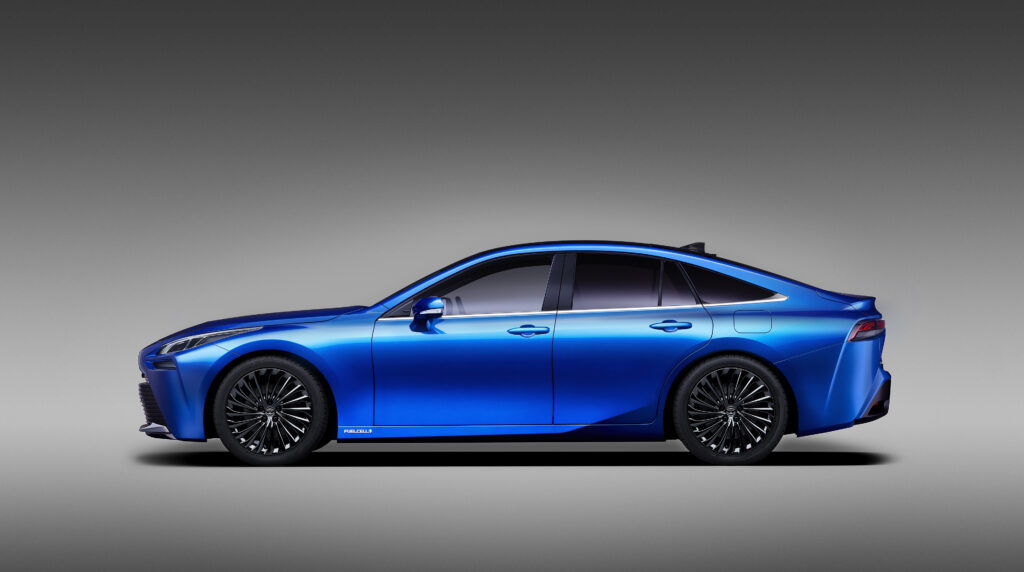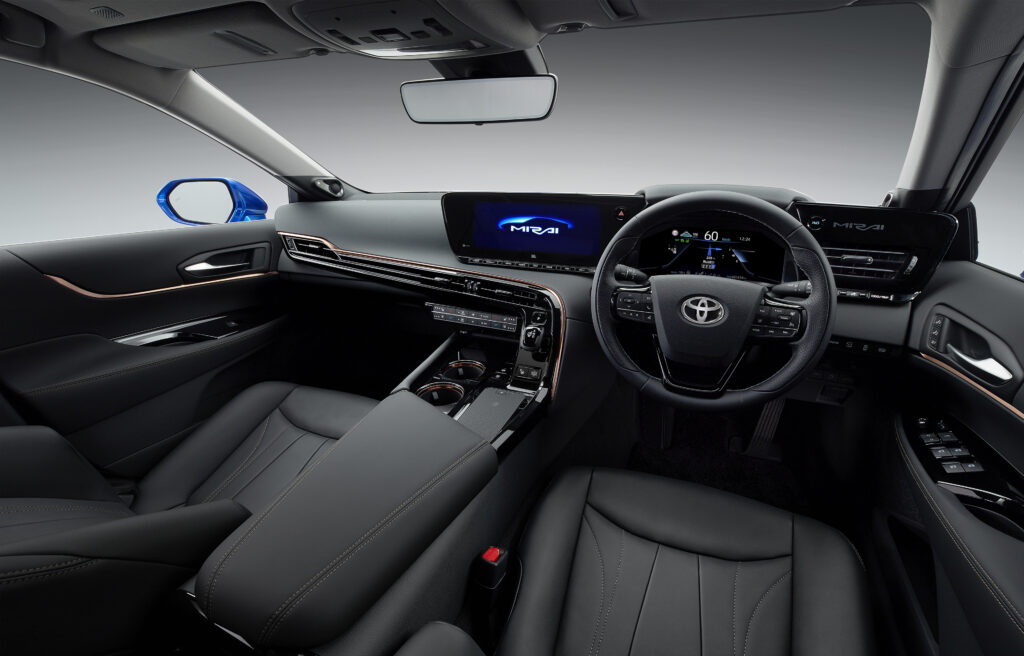Akihabara News (Tokyo) — Toyota Motor Corporation has unveiled its second-generation Mirai, representing the firm’s renewed commitment to hydrogen-powered vehicles at a time when most others believe that electric vehicles are the wave of the future.
The prototype zero-emission Mirai fuel cell electric vehicle (FCEV) will be previewed at the 2019 Tokyo Motor Show with the expectation that it will become publicly available sometime in late 2020.
The second-generation Mirai features a fully-redesigned fuel cell system, including its fuel cell stack, that Toyota says will delivers substantially improved performance over the current model, including a 30% increase in driving range.
The first-generation Mirai launched in 2014 to mixed reviews, selling approximately 10,000 vehicles.
Toyota’s more than two decade commitment to hydrogen-powered vehicles has been unique among global automakers, which have not been such big believers in the technology. Nevertheless, FCEVs do have shorter refueling times and longer driving ranges than the current generation of electric vehicles.
Two major hurdles to the popularization of FCEVs include their high material costs for production and the lack of a refueling infrastructure in most of the world, though Japan itself is making strides in this latter respect.
“We hope that with the new Mirai we will be a leader in helping to realize a hydrogen energy society,” comments Toyota.


